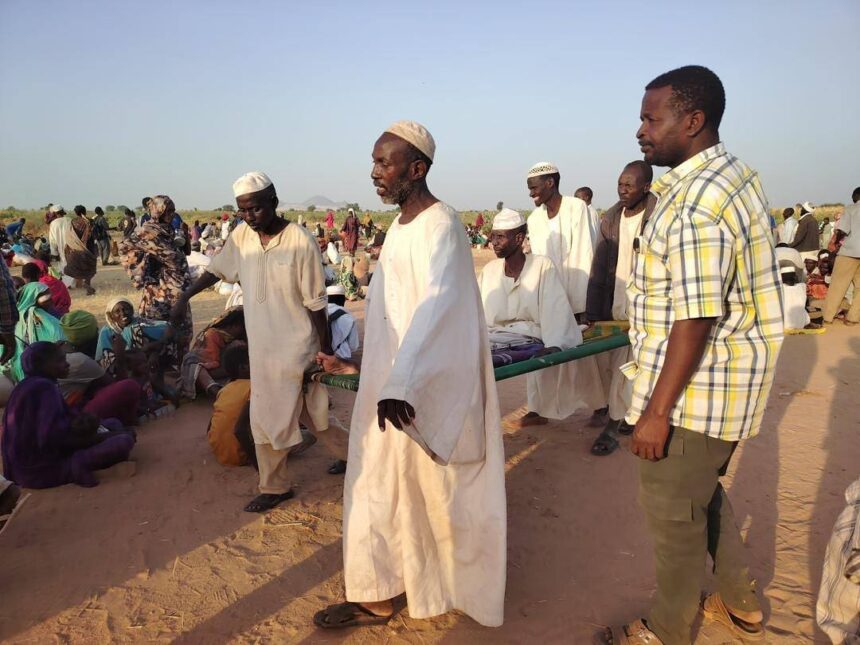Four United Nations agencies on Thursday called for urgent international action to address the escalating humanitarian crisis in Sudan, highlighting that millions face starvation, disease, and displacement following more than 900 days of severe conflict.
Senior officials from the International Organization for Migration (IOM), the UN Refugee Agency (UNHCR), UNICEF, and the World Food Programme (WFP) emphasized that Sudan is now among the world’s most critical emergencies, with over 30 million people in need of aid and 9.6 million internally displaced. Nearly 15 million children require assistance, they reported.
During recent visits to Sudan, the leaders of these agencies observed firsthand the devastation in Khartoum, Darfur, and other war-affected regions, where famine, disease, and human rights violations are widespread.
“This scale of return to Khartoum is both a sign of resilience and a warning,” stated Ugochi Daniels, IOM’s deputy director general for operations. “People are coming back to a city still scarred by conflict, where homes are damaged and basic services are barely functioning.”
The conflict, now in its third year, has disrupted essential services such as healthcare and education, leaving 14 of the country’s 17 million school-aged children out of school. Famine was confirmed in parts of Sudan last year, and the hunger crisis remains dire, with thousands at imminent risk of death without urgent food and nutrition support.
In Darfur and the Kordofan states, communities are largely cut off from food, water, and medical care. Over 260,000 civilians, including 130,000 children, have been besieged in Al Fasher for 16 months, according to UNICEF. Meanwhile, outbreaks of cholera, dengue, and malaria are on the rise, and health facilities have collapsed.
“What I witnessed in Darfur and elsewhere this week is a stark reminder of what is at stake: children facing hunger, disease, and the collapse of essential services,” asserted Ted Chaiban, UNICEF deputy executive director. “Families are doing everything they can to survive, but their resolve must be matched by urgent global action.”
Kelly T. Clements, UNHCR’s deputy high commissioner, characterized the situation as “one of the worst protection crises we’ve seen in decades,” pointing to widespread displacement and increasing risks of sexual violence.
Despite the dire circumstances, over 2.6 million people have returned to their homes as fighting has abated in some areas. However, most returnees encounter neighborhoods in ruins and non-functional basic services.
Funding shortages are exacerbating the crisis. The $4.2 billion Humanitarian Response Plan for Sudan is currently only 25% funded, jeopardizing emergency operations. Humanitarian agencies have reached 13.5 million people so far this year but warned that without additional resources, lifesaving assistance may be significantly reduced.
“I saw a city devastated by war, where families returning home to Khartoum urgently need food, water, and basic services. But above all, I saw hope,” said Valerie Guarnieri, WFP assistant executive director.
The agencies jointly called for an immediate cease-fire, unrestricted humanitarian access, simplified aid delivery procedures, urgent funding, and continued support for displaced populations and refugees.
“The humanitarian community stands ready,” the statement declared. “But it cannot act alone. The world must step up.”
Since April 2023, Sudan has experienced an unprecedented humanitarian crisis driven by ongoing conflict between the Sudanese Armed Forces and the Rapid Support Forces. Civilians continue to bear the brunt of violence, resulting in nearly 9 million internally displaced people, rendering Sudan the world’s largest internal displacement crisis. Additionally, over 3 million individuals have fled to neighboring countries.
Tags: UN agencies urge global action as Sudan crisis deepens Extract 5 SEO-friendly keywords as tags. Output only keywords, comma separated.
Hashtags: #agencies #urge #global #action #Sudan #crisis #deepens










